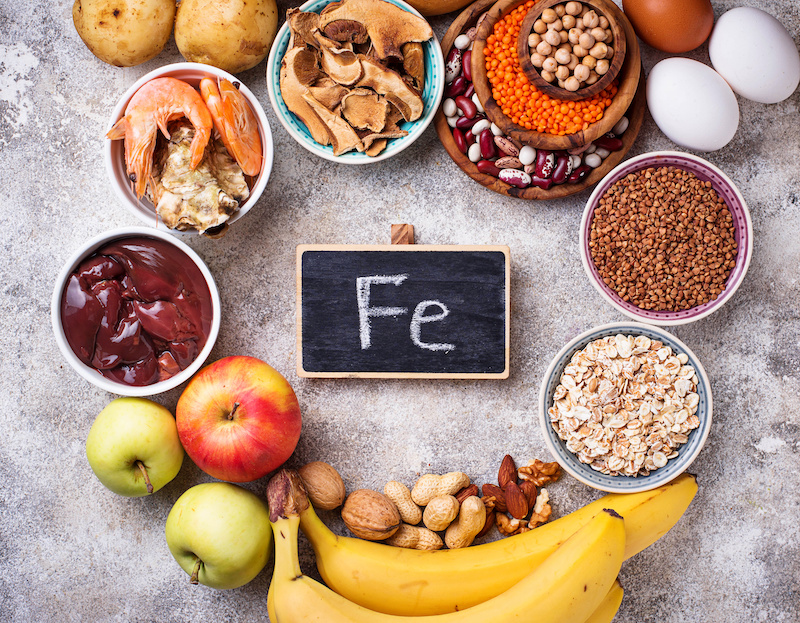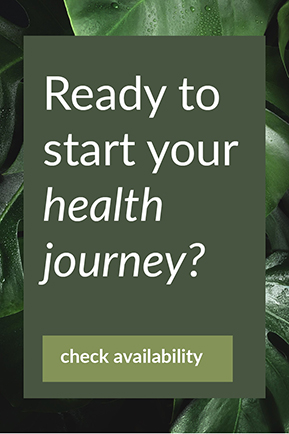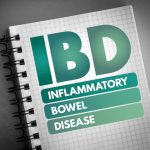Iron deficiency is a very common condition that I see in my naturopathy clinic in Sydney. What many people don’t realise is that it plays a role in many important body processes. A deficiency in iron can not only cause shortness of breath and dizziness but it can impact cognition, energy levels, immune defences, fertility, athletic performance, anxiety, depression and more.
Iron is an essential mineral that is responsible for maintaining the health of every cell in the body by providing vital oxygen to the cells via its role in haemoglobin. Despite its importance to health, a staggering one third of women of reproductive age worldwide are iron deficient. Iron deficiency leads to a condition known as iron deficiency anaemia – a condition whereby there are low levels of red blood cells and/or low haemoglobin levels in the blood due to a deficiency in iron. This type of anaemia is sometimes also known as microcytic (“small cell”) anaemia. This is because being low in iron causes the red blood cells to be much smaller than usual. Symptoms of iron deficiency anaemia include:
- Fatigue and lethargy
- Dizziness
- Muscle weakness and spasms
- Brain fog
- Poor immune function
- Hair loss
So, how does iron deficiency happen? There are a number of reasons why a person can become deficient in iron, including:
- Not enough iron-rich foods in their diet (especially important if vegan/ vegetarian)
- Not absorbing iron well
– because of low hydrochloric acid in the stomach (hypochlorhydria), or
– because of high intake of calcium, which blocks iron absorption - Heavy and/or prolonged periods caused by hormonal imbalance, endometriosis, fibroids.
- Low calorie diet
- Chronic digestive conditions such as irritable bowel syndrome (IBS), bacterial overgrowth in the small intestine known as SIBO, Coeliac disease or Inflammatory Bowel Disease including Crohn’s disease or ulcerative colitis, especially if it causes blood loss as well as impairing absorption.
- Pregnancy
Understanding the underlying cause/s of your iron deficiency is key to making lasting changes to your nutrient status. It is only by addressing these underlying causes that we can properly correct the deficiency, without just using supplements as a band-aid solution.
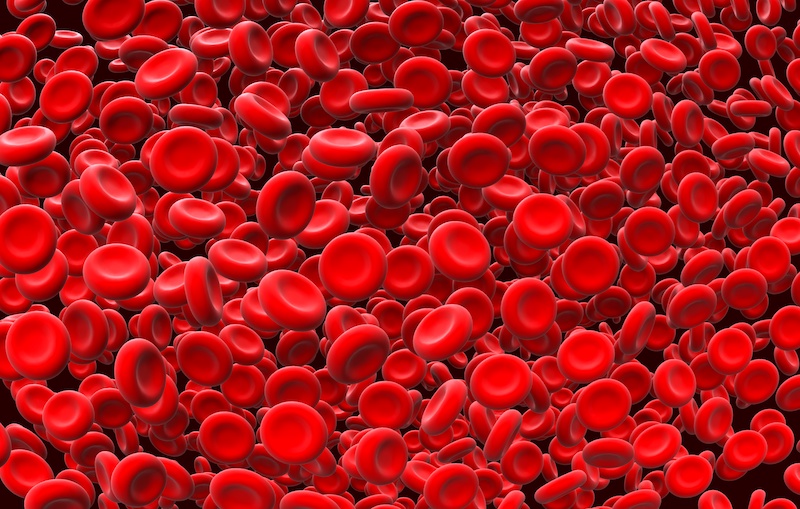
How Much Iron Do I Need?
Daily iron requirements vary a lot depending on age and sex. This is partly because women have slightly higher iron requirements if they menstruate. Pregnant women have even greater requirements because of the increased blood volume in pregnancy, which is part of the reason why iron deficiency can be a particular issue for women in pregnancy and postpartum.
Below are the recommended daily intake (RDI) levels for healthy individuals:
Infants and Children:
- 0-6 months: 0.2mg/day
- 7-12 months: 11mg/day
- 1-3 years: 9mg/day
- 4-13 years: 8mg/day
- Girls 14-18 years: 15mg/day
- Boys 14-18 years: 11mg/day
Adult Women:
- 19-50 years: 18mg/day
- Pregnancy: 27mg/day
- Lactation: 10mg/day
- 51-70+: 8mg/day
Adult Men:
- 19-70+: 8mg/day
As you can see, menstruating women require more than double the amount of iron that post-menopausal women or men require. This is why women of reproductive age are so much more likely to be deficient in iron.
Dietary Sources of Iron – Haem vs. Non-Haem
There are two types of iron found in food – haem and non-haem. Haem iron (the type found in meat) is more readily absorbed via specific transporters in the gut. Non-haem iron (found in plant foods) cannot use these same transporters, and is also often bound to other nutrients, so is less readily absorbed. This is why vegans and vegetarians need to eat higher amounts of iron-rich foods in order to meet their needs – a single plant food may contain a relatively high amount of iron, but you might not be absorbing all of that iron when you eat it.
Interpreting Iron Studies Results
As a naturopath, reviewing blood tests are important. In addition to haemoglobin, iron levels, iron storage (ferritin) and other markers, it’s important to know that there are other types and causes of anaemia which may need to be ruled out, including:
- Low levels of vitamin B12 or folate
- Red blood cell disorders, such as thalassaemia
- Serious chronic diseases, such as autoimmune disease or chronic kidney disease
- Thyroid disease
- Infections
Treatment Strategies for Iron Deficiency
Naturopathic treatment strategies are unique to each client and will take into consideration the cause of iron deficiency and also consider dietary preferences. I often recommend some form of the Mediterranean diet which is a healthy diet that has a high emphasis on unprocessed foods, dark, leafy greens, fresh fruit and vegetables, legumes, nuts & seeds, fish & seafood, eggs, and healthy fats with a balanced amount of red meat and chicken. Vegetarians, vegans and pescatarians may require more iron supplementation when they follow a Mediterranean diet tailored to their dietary choices.
Being iron deficient does not mean eating meat in excess quantities to the detriment of important food groups and this will be discussed with you as part of your treatment plan.
Red meat is a very good source of iron when eaten as part of a healthy diet, however overeating it can cause other health issues. I also recommend avoiding all processed meats such as bacon and salami.
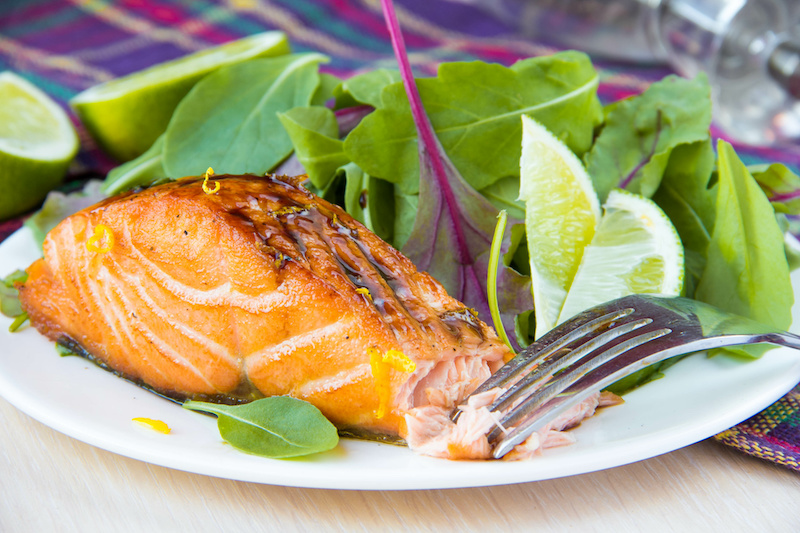
Dietary Strategies
Eat Plenty of Iron-Rich Foods
Eating enough iron-rich foods is key to long-term iron status. A balanced, varied diet that includes plenty of the following food types will help to keep your iron levels in check. If you are vegan or vegetarian, it is particularly important to keep track of your intake.
- Haem (animal) sources of iron include: red meats (beef, lamb, kangaroo), liver, oysters, mussels, chicken, fish.
- Non-haem (plant) sources of iron include: legumes (chickpeas, cannellini beans, kidney beans, lentils, tempeh, tofu), oats, quinoa, pistachios, cashews, sesame seeds, pumpkin seeds, hemp seeds, almonds, tahini, green leafy vegetables (spinach, collard greens, Swiss chard), chanterelle, morel, and oyster mushrooms.
- What about eggs? eggs are a non-haem source of iron. Whilst eggs are a powerhouse of important nutrients, there is some evidence that particular proteins in egg may inhibit iron absorption. For this reason, do not have with a high iron content meal and eat separately 2 hours away.
- What about dried fruit? Some dried fruit such as dried apricots and raisins are a good source of non-haem iron. Due to the negative impact on blood glucose levels however, I only ever recommend small amounts of dried fruit as fresh is best.
Pair Iron-Rich Foods with Vitamin C
Vitamin C helps to increase the absorption of iron in the gut, making it ideal for pairing with your iron-rich foods. This can be as simple as serving some cooked broccoli alongside your meal or squeezing the juice of half a lemon or lime on your meals as you plate up. Foods rich in vitamin C include: citrus fruits, kiwifruit, strawberries, capsicum, broccoli, cauliflower, tomatoes, sweet potato.
Avoid Pairing Iron Inhibitors with Iron-Rich Foods
Certain foods and drinks impair or inhibit the absorption of iron. It’s best to avoid eating these foods at the same time as your iron-rich foods. Separate by 2 hours either side of your meal to prevent them from reducing iron absorption. Foods/ drinks that inhibit iron absorption:
- Coffee and tea (green and black)
- Chamomile tea
- Red wine
- Calcium
Support your Gastric Acid Production with Bitters
Gastric acid (also known as hydrochloric acid) is produced in the stomach to break down food and is an essential part of the process of iron absorption. Dietary bitters can help to increase the production of gastric acid by improving vagal nerve and parasympathetic nervous system tone. Dietary bitters are best taken around 15 minutes before your main meals, to give your body time to produce gastric acid. Below are some ways to boost your gastric acid production:
- Drink liquid herbal bitters 10-15 minutes before meals. A custom herbal blend containing bitter herbs such as gentian that I have in my herbal dispensary can be a powerful tool for improving overall digestion in certain individuals
- Mix the juice of half a lemon or 2 teaspoons of apple cider vinegar into 250ml of room temperature filtered water and sip 15 minutes before meals
- Make a pre-meal appetiser of bitter greens, such as rocket or dandelion greens. These make a great leafy salad starter. For an added bitter boost, pair with an apple cider vinegar dressing.
Eat Well-Cooked, Easy-to-Digest Meats
Meats that have been slow cooked are more easily digested. Slow cooked stews, soups and curries with good quality red meats are a great option for boosting iron intake and absorption.
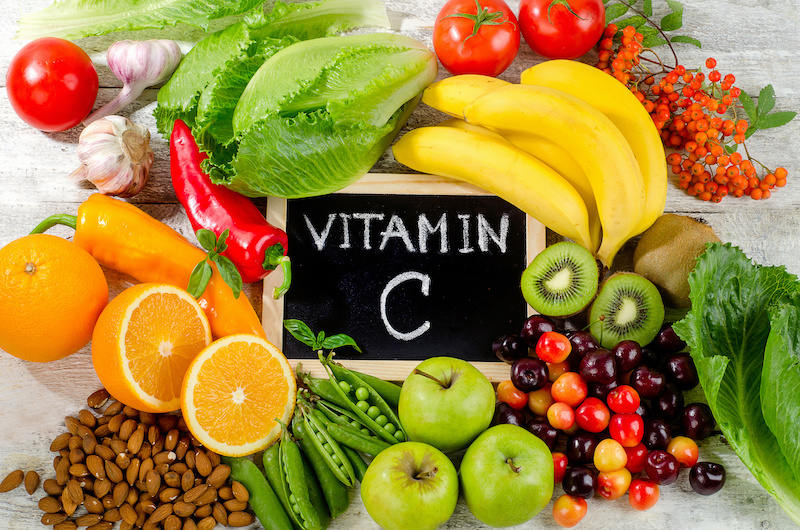
Lifestyle Strategies
Practice Mindful Eating
Mindful eating is a good tool for boosting your absorption of all nutrients in your food, iron included. The practice of mindful eating involves sitting at a table to eat, paying attention to your meal, and avoiding distractions such as phones and TV. It’s also important to slow down and really chew your food, rather than eating as quickly as possible. Eating in this way promotes the cephalic phase of digestion, which boosts your body’s production of gastric acid and other digestive secretions, so you’re primed and ready to break down and absorb the nutrients in your food.
Supplementation
Iron Supplementation
Even with the above dietary and lifestyle changes, a supplement may be necessary to help get your iron levels back up quickly. Be aware that not all iron supplements are equal – the form of the iron matters! Certain types of iron supplement, such as Ferrous sulphate, are difficult for the body to break down and absorb, which is why they can cause side effects such as dark stools and constipation. Certain practitioner brands of iron may be more suitable if you have a sensitive digestion and require a more easily absorbed form. This means it is better able to get your iron status back up quickly and also won’t cause constipation
As your naturopath, it is of critical importance that the underlying cause of your low iron is understood so that this can be addressed as a priority.
Once this has been determined, it is important that you increase your iron intake from food and supplements until your iron storage (ferritin) and iron levels are normal. This may mean a higher dose for a period of time.
Treat the cause whilst reducing the symptoms: an important Naturopathic approach
Treating the cause of your iron deficiency is crucial. Do you fully understand what to eat for optimal iron when cutting down on meat? Do you have a parasite? Do you have digestive issues that are impacting iron absorption? Are your hormones unbalanced so that your periods are heavier than they should be, or do you have a condition such as endometriosis that is causing heavier menstruation?
For a thorough and supportive investigation as to the cause of your iron deficiency combined with treatments to support symptoms and fatigue and proper iron level improvement, please book an initial consultation with myself via the contact tab on this website.
References
Cave, J. (2022, September 6). A guide to boosting your iron levels, finally! https://halsahealth.com.au/a-guide-to-boosting-your-iron-levels-finally/
Ganima, K. (2018). Lactoferrin: An alternative approach to iron deficiency without the side effects. https://urbanherbalist.co.nz/blogs/urban-herbalist-blog-posts/lactoferrin-for-iron-deficiency-an-alternative-approach-without-the-side-effects
Huda, T., Dibley, M., El Arifeen, S., Islam, S., Ali, N., Raihana, S., Rahman, M., Qadri, F., Raqib, R., Tarnow-Mordi, W., Rahman, Q. S., & Bhuiya, S. (2019). Assessing the efficacy of bovine lactoferrin to correct iron deficiency anaemia in non-pregnant no-lactating women: A randomised controlled trial. Current Developments in Nutrition, 3(1).
Kell, D. B., Heyden, E. L., & Pretorius, E. (2020). The biology of lactoferrin, an iron-binding protein that can help defend against viruses and bacteria. Frontiers in Immunology, 11.
McNaughton, L. (2022, September 4). Importance of iron and combatting deficiency. https://www.lisamarienaturopath.com/blog/importance-of-iron-amp-combatting-deficiency
Nutrition Australia. (2014). Iron. https://nutritionaustralia.org/fact-sheets/iron/
Paesano, R., Torcia, F., Berlutti, F., PAcifici, E., Ebano, V., Moscarini, M., & Valenti, P. (2006). Oral administration of lactoferrin increases haemoglobin and total serum iron in pregnant women. Biochemistry and Cell Biology, 84(3).

